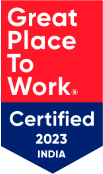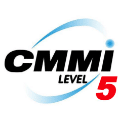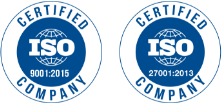What is Workday, and How Different is it From Traditional ERP Systems?

Workday is a leading cloud-based human capital management (HCM), financial management solutions, and enterprise resource planning (ERP) provider. It helps companies in diverse industries optimize business processes and operations.
The pandemic spurred the need for the digitization of systems, including ERP, to enable companies to manage operations remotely and adapt to changing landscapes. However, the limitations of ERP systems (on-site and cloud) with rigid processes, fragmented data, and low agility highlighted the need for technology with an intelligent data core. This is where Workday comes in.
Workday offers a unified Data Core that can support an enterprise's entire business and provide the agility to respond to changes quickly. It has built-in analytics and machine learning capabilities that enable faster decision-making, which is essential in today's dynamic business environment.
Simply put, Workday is an entirely new class of software enabling companies to respond to the new business environment rapidly. This article traces the evolution of ERP systems and explains how Workday is different.
History of Workday
Founded in 2005 by Aneel Bhusri and David Duffield, California-headquartered Workday operates in the software and cloud computing space. The company's human capital management (HCM), financial management, and analytics applications cater to various companies, government agencies, and institutions.
Workday debuted on the New York Stock Exchange in Oct 2012, raising more cash than any U.S. tech company since Facebook's May 2012 IPO.
Starting with its first acquisition, a web services integration company, Workday has expanded its footprint by acquiring businesses in analytics, identity management, machine learning (AI), employee engagement, and other niche businesses. The latest is its 2021 acquisition, an extended workforce, and vendor management system (VMS) software enterprise.
Workday has consistently made its software competitive with newer, more efficient features and components. In 2020, Workday was ranked by Fortune magazine in 5th place on their list of the Top 100 Companies to Work!
Suites and Modules Offered by Workday
Workday offers a suite of software solutions to help businesses automate and manage their processes. These are explained below to help you understand better how Workday's solutions can support your business.
Human Capital Management (HCM): Workday HCM software supports a range of critical HR functions, including HR Management, Benefits Administration, Talent Management, Workforce Planning and Analytics, Big Data Analytics, Recruiting, Project and Work Management, Payroll Solutions, and Time Tracking. These critical modules of Workday HCM make it one of the globally accepted tools. These integrated modules enable businesses to manage and enhance the complete employee experience.
The solutions help businesses to adapt by leveraging superior reporting and analytics, machine learning, and innovative security methodology. A flexible framework organizes employees on multidimensional criteria while providing managers with insights to lead teams effectively. Likewise, Workday HCM solutions enable employees to set measurable goals and access opportunities for growth within the organization.
Financial Management: Workday’s intelligent, automated financial processes helps finance teams to focus on analysis and action using agile systems that adapt and track evolving business processes. Enhanced Machine Learning capabilities facilitate quick anomaly detection and correction while transforming business data into accounting. Likewise, efficient data delivery and comprehensive transaction documentation help stakeholders undertake strategic and value-driven activities, manage risk, and track compliance.
Student: Workday Student efficiently integrates the students with their institutions by facilitating a user-friendly registration process, degree tracking, and access to academic information such as financial aid and planning. For institutes, seamless and flexible management of HR, student finance, and records enables real-time data insights for informed decisions and capabilities to adapt programs to diverse student needs.
Supply Chain: Workday provides healthcare providers with comprehensive supply chain management combining planning, financials, analytics, HR, and supply chain in a single cloud-based system. This helps optimize sourcing, purchase, consumption, and management functions while enabling strategic solutions, collaboration, compliance, and process standardization. Workday thus facilitates high-functioning healthcare teams, from mobile devices or desktops, with end-to-end visibility and flexibility to meet business needs.
Payroll Management: Workday’s payroll management solutions support multiple payroll calculations, run audit reports, scheduling & labor management, and also visualize costs, new trends, and potential issues - all in one place. The insights and analytics provide an integrated overview of the payroll data. At the same time, the flexibility in managing resources and processes allows for tailored and cost-effective payroll management compared to traditional ERP systems.
How is Workday Different from other ERPs?
A cloud ERP system comprises a suite of software applications managed in a single system. While Workday may appear to be an ERP system with its integrated suite of applications, it is an entirely new software category.
For starters, some legacy-ERP systems which have shifted to the cloud still retain the rigid data infrastructure of on-premise systems. For example, the data is stored in separate silos, and the custom-coded processes are not agile enough to adapt quickly to the changing business needs.
In contrast, Workday was launched in the cloud from the start. Also, ERP systems generally don’t translate to a native-cloud architecture.
Unlike ERP systems with disparate applications, Workday integrates superior finance and HR applications into a single, robust system. Moreover, Workday’s intelligent data core seamlessly connects organizations' financial and people data, facilitating insights and flexibility to make data-driven decisions confidently.
To explain further, while a cloud platform may help reduce operating costs, a cloud ERP will not alone help bridge the gap between process and execution. This poses significant challenges to organizations. On the other hand, software solutions like Workday help businesses capitalize on new opportunities and thrive in changing market scenarios.
Market Capture
According to Slintel, a sales intelligence software leader, as of 23 November 2022, Workday, with 25914 customers and a presence in 137 countries, commands a significant 24.35% of the market share in HCM and Enterprise Resource Planning (ERP) categories.
Furthermore, Workday HCM competing with similar products in the Project Collaboration categories have a 12.49% market share in the Human Capital Management category. This includes 13287 customers in 120 countries.
Conclusion
To sum up, the architecture of enterprise management cloud solutions, like Workday, comprise an intelligent data core. Moreover, this technology offers four critical advantages, namely:
Strong Foundation: A seamless foundation supported by embedded security, modern automation, i.e., machine learning, and open and well-networked architecture. This ensures scalability and continuous innovation.
Organization Focus: Applications centered around business needs rather than conformance to a software delivery model. This provides the liberty to design and implement processes tailored to an organization’s requirements.
Holistic Insights: Access to real-time and comprehensive insights into finances, operations and workforce that further inform business decisions.






